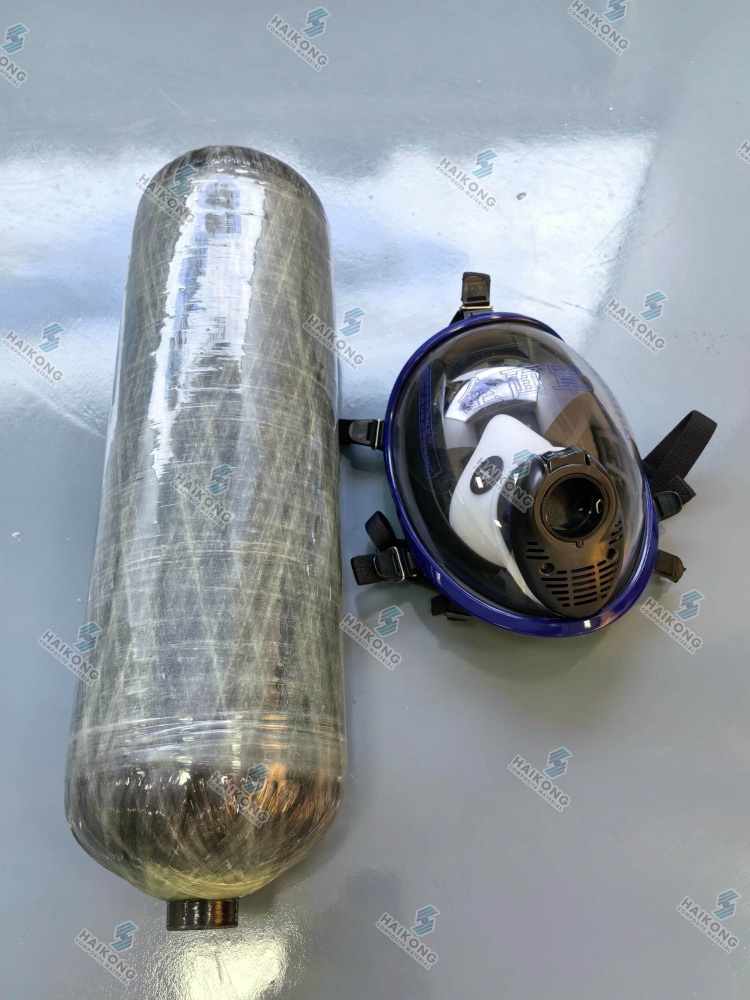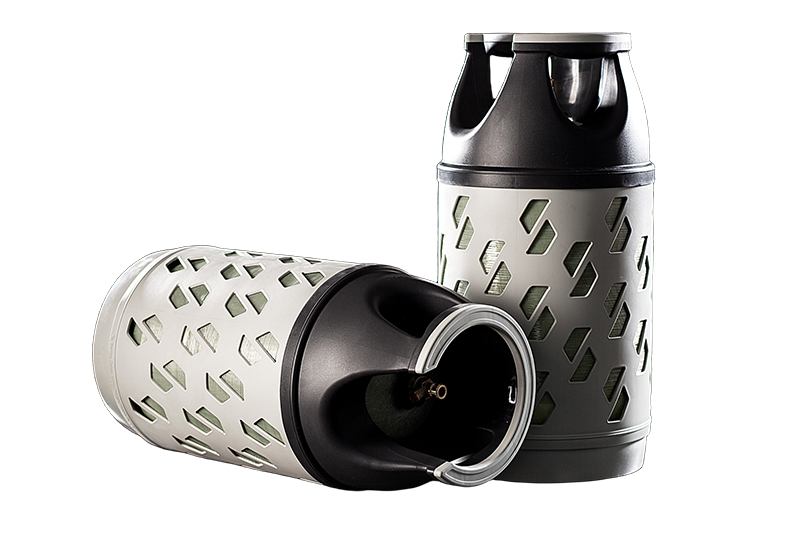1. Technical Adaptability
- Lightweight Design: Type IV cylinders utilize a plastic liner (e.g., PA6) and a fully-wrapped carbon fiber structure, reducing weight to just 1/3 of traditional steel cylinders. For example, a 6.8L Type IV breathing cylinder weighs less than 2.5 kg, compared to ~4 kg for a similar Type III cylinder.
- Corrosion Resistance & Longevity: The plastic liner eliminates hydrogen embrittlement risks, while the carbon fiber layer provides excellent resistance to seawater, chemical fumes, and harsh environments. The cycle life exceeds 15,000 refills, far surpassing metal cylinders.
- Enhanced Safety: The fiber-wound structure ensures controlled leakage (not explosion) upon rupture, complying with EN13794 and other safety standards.
2. Key Applications
- Firefighting & Emergency Rescue:
- SCBA (Self-Contained Breathing Apparatus) with 30 MPa working pressure provides 45+ minutes of air supply.
- EEBD (Emergency Escape Breathing Device) is widely used in ships, tunnels, and confined spaces due to its lightweight nature.
- Diving & Industrial Use:
- Closed-Circuit Rebreathers (CCR) use Type IV cylinders to store high-purity oxygen, avoiding electrolytic corrosion issues of metal liners.
- Chemical industry gas cylinders resist long-term exposure to corrosive gases (e.g., chlorine).
3. Challenges & Future Improvements
- Cost Reduction: Type IV cylinders are 20-30% more expensive than Type III due to high-cost carbon fiber (75% of material cost). Automated winding processes are being developed to lower production costs.
- Low-Temperature Performance: Plastic liners may become brittle below -40°C, requiring low-temperature-resistant resins (e.g., PEEK) or insulation layers.
- Standardization: Domestic standards (e.g., GB/T 3836.1) are still evolving, with reference to ISO 11439 for global compliance.
Conclusion
Type IV composite gas cylinders are gradually replacing traditional metal cylinders in breathing apparatus due to their lightweight, corrosion-resistant, and high-safety advantages. With advancements in materials and manufacturing, their adoption in firefighting, diving, and industrial applications is expected to expand further.

Shandong Chanyan Haikong Composite Material Co.,Ltd
Add: No. 2877 Shengfu Road, Shengjing Street, Zhangqiu District, Jinan, Shandong, China
Tel: +86 133 2512 6331(whatsapp)
Email: sales@hkfhcl.com
Website: www.hkfhcl.com

